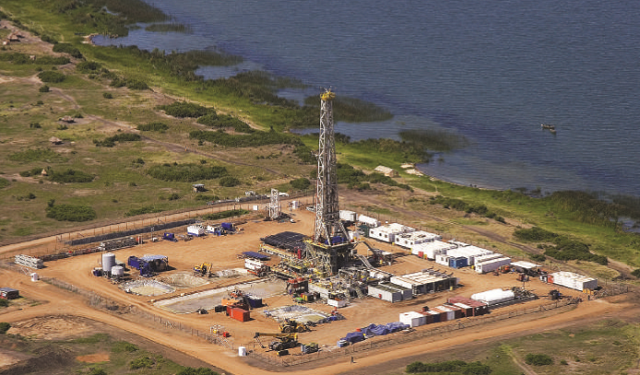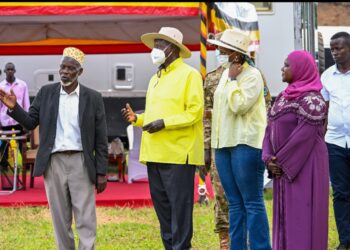Despite facing obstacles, Ugandan insurers have been gradually establishing themselves in the oil and gas sector, particularly in projects such as Tilenga, Kingfisher, and the East African Crude Oil Pipeline (EACOP).
By the end of 2023, local insurers were actively participating in these projects, marking significant progress in a challenging environment.
However, the industry has not been without its challenges. The global campaign #StopEACOP, opposing the construction of the EACOP, has indirectly impacted the sector.
Foreign reinsurers, including Munich Re, Hannover Re, and SCOR, faced scrutiny from this campaign, influencing the dynamics of risk-taking in the Albertine region.
Jonan Kisakye, CEO of the Insurance Consortium for Oil & Gas Uganda (ICOGU), acknowledged the initial small scale of risk retention locally.
Nonetheless, he emphasized the importance of starting small and gradually expanding. Maurice Amogola, an insurance consultant and CEO of Minet Insurance Broker, echoed this sentiment, highlighting the necessity of spreading risks across international markets.
Despite these challenges, Kisakye emphasized ICOGU’s success in pooling capacity and de-risking the oil sector. To date, ICOGU has written over $24 million in premiums, demonstrating its impact in fostering collaboration among local insurers.
“ICOGU stands out as a success story, illustrating how the insurance industry operates and how it effectively pools its capacity. As of now, we have written premiums exceeding $24 million,” stated Kisakye.
ICOGU operates similarly to Senegal’s “Oil & Gas Risks Insurance Pool,” aiming to unify underwriting capacity and enhance negotiating power with the international reinsurance market.
Kisakye highlighted the favorable terms negotiated with national oil companies, allowing members to engage in risky endeavors with shared resources and expanded capacity.
Specific project premiums for ICOGU included $9.4 million for Contractor All-Risk (CAR) in the Tilenga project, $2 million for EACOP, and $3.2 million for the Kingfisher project. Additionally, ICOGU managed insurance aspects for the Kingfisher Development Area under CNOOC.
However, challenges persist, including the difficulty in negotiating favorable terms with international insurers due to intricate requirements and alignment with regulatory frameworks.
Uganda’s insurance sector also faces reinsurance limitations, with only two companies, Uganda Re and Kenya Reinsurance Corporation Uganda – SMC Limited, by the end of 2023.
Concerns have been raised regarding the potential repatriation of value by foreign reinsurance players, prompting calls for the government to establish a reinsurance fund.
This move aims to retain a greater portion of insurance premiums within the country, safeguarding the economic benefits derived from the booming oil and gas sector.
As the sector continues to develop, insurers play a crucial role in managing risks associated with oil and gas operations.
Alex Mukasa, Managing Director of Marsh Uganda, emphasized the importance of insuring assets and liabilities in such operations to protect against potential disasters, referencing historical incidents like the Piper Alpha oil rig disaster in 1998.
Despite the challenges, Ugandan insurers are resiliently navigating the complexities of the oil and gas sector, working towards sustainable growth and local retention of insurance premiums.
Do you have a story in your community or an opinion to share with us: Email us at editorial@watchdoguganda.com














